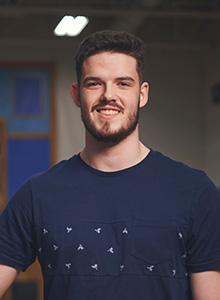The Inner Bay of Fundy (iBoF) Atlantic Salmon ‘In-Situ’ Egg Incubation Projectis a multi-year initiative, funded through the Aboriginal Fund for Species at Risk (AFSAR) by the Canadian Federal Department of Fisheries and Oceans (DFO), to provide additional information to DFO and the iBoF Atlantic Salmon Recovery Team about critical habitat of the Endangered iBoF Atlantic Salmon on the Chiganois, Debert, Folly, Great Village and Portapique Rivers of Cobequid Bay, of the Norther Minas Basin, Nova Scotia, and to continue research on incubating salmon eggs in natural, wild conditions (in-situ) as a barometer of stream health and potential reintroductions of iBoF Atlantic salmon.
The iBoF Atlantic Salmon ‘In-Situ’ Egg Incubation Project aligns with other Maritime Aboriginal Peoples Council (MAPC) and IKANAWTIKET projects to identify and measure barriers to fish migration, as well as a range of other issues pertaining to degraded aquatic habitat. TheProject Manager, Kathryn Townsend, will lead the project and focus on developing and executing a scientific study to design and testthe effectiveness of Egg Incubation Basket (EIB) with respect to egg survivability. The project’s lead Field Technician, Zachary Burrows, will focus on stream surveys, water quality, habitat and species assessments, and other parameters to locate ideal habitat for the project and to monitor those sites and others to determine any links between egg survivability and habitat conditions. Project partners for the ‘In-Situ’ Egg Incubation Project include DFO researchers who initiated studies on EIB several years ago, and the Live Gene Bank Biodiversity Facility in Coldbrook, Nova Scotia, who will provide the Atlantic salmon eggs for the EIBs.
The project requires delicate hands, diligent observations, and perseverance to care for the fragile Atlantic salmon eggs in often changing and unfavourable environmental conditions.Generally, salmon become physically stronger the longer they are exposed to natural, wild, ‘in-situ’ conditions, particularly during very young life stages.Based on current designs, MAPC will experiment with EIB’s, develop and test a conceptually new design using a more organic medium- wood.In addition to incubating eggs in-stream, MAPC will increase knowledge about iBoF Atlantic salmon through juvenile and spawning surveys, RAPID stream assessments, water quality and chemistry assessments, habitat assessments, aquatic invertebrate biomonitoring, electrofishing surveys and water sampling.With the ‘In-Situ’ Egg Incubation Project, MAPC aims to establish a database of habitat information and develop a greater knowledge about iBoF Atlantic salmon and their critical habitat rivers flowing into Cobequid Bay. The project hopes to add insight about why iBoF Atlantic salmon populations are not recovering, including investigating the gap in knowledge about food availability for Alevin and Fry development.
Gavin Scott: In-Situ Egg Incubation Project Lead Field Technician

Gavin was the Lead Field Technician for the In-Situ Egg Incubation Project, working alongside Project Manager Kathryn Townsend. He is a recent graduate of the Fisheries and Marine Institute of Memorial University of Newfoundland. Currently possessing a Diploma in Marine Environmental Technology, Gavin is pursuing a Bachelor of Technology focused on Engineering Technology and Applied Sciences within the marine environmental field. His goal is to help protect/sustain ecosystems and their resources, while advocating for both their ecological and socio-economical value.
During his time as a 2019 Summer Intern at Harbor Branch Oceanographic Institute, he looked at the analysis of micro-habitat interactions happening on a Florida coral reef. Using ecological forecasting software, his aim was to assess the state of the ecosystem 15-years into the future and determine whether the health and biodiversity of the ecosystem was being jeopardized.
Gavin has an adamant passion for the great outdoors, and is always taking steps to minimize his environmental footprint. It was the sheer enjoyment of growing up around water that lead him to uptake a career in the aquatic environment. He also enjoys a wide array of sports and hobbies, such as soccer, fishing, snowboarding, and golf.
Email: gscott@mapcorg.ca
